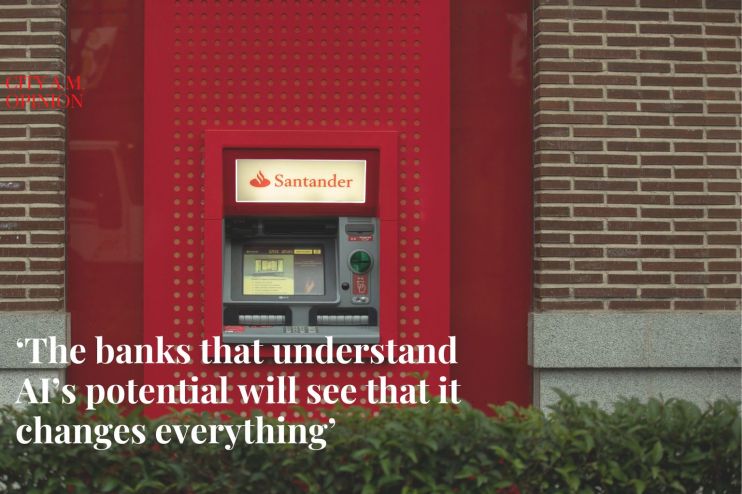Why won’t banking chief execs talk about artificial intelligence?

Banks are slowly waking up to the potential of artificial intelligence, but the City CEOs are still reluctant to talk about it, writes Alexandra Mousavizadeh
IT HAS been a year of staggering progress in the field of artificial intelligence (AI), and the race to safely and successfully harness the technology has reached a critical juncture for the world’s biggest banking institutions.
Many of these banks have been developing AI use cases behind closed doors for half a decade or more. What’s changed in 2023 is the mass shift in public understanding of AI, not to mention the growing concern about the unfettered use of these technologies.
Banks are now having to field relentless questions from investors, customers, regulators, and analysts about their AI strategy, where they’re making investments, how they’re determining return of investment, and of course, the safeguarding measures they’re implementing.
It is a pivotal moment for the banking industry, one that necessitates real leadership. But only a quarter of banking CEOs are speaking publicly about their AI plans, according to our research.
To put this in perspective, over half (54 per cent) of the world’s biggest banks have established AI as a strategic objective with investors, yet few of their chief executives have ever mentioned it in their annual letter to shareholders. Over 400 AI-specific press releases have been issued by the banks in just the past two years, yet just 40 per cent of CEOs have discussed AI in the media, with fewer still showing any willingness to discuss how it’s impacting their bank.
Clearly, this isn’t reflective of all banking bosses. But for the most part, whichever direction you look in, there’s a disconnect between the banks’ AI positioning and the chief exec’s commitment to telling their AI story. Bosses need to be able to address concerns about the data security and privacy implications of using LLM, or fears about how future AI regulation may impact the banks’ activities.
Crucially, those who understand AI’s potential can see that it changes everything – that successful AI adoption involves fundamentally re-imagining what it means to be a bank.
Banking leaders who proactively share details of their ongoing organisational realignment to become AI-enabled institutions are providing reassurance that they are well-positioned to be authorities on AI. In contrast those who avoid the subject risk undermining the progress that is happening behind the scenes, or, worse, conveying the sense that the bank is pursuing a “wait and see” strategy on AI.
Banks which articulate their AI vision and leadership credentials clearly will be able to translate this into improved market performance, as investors naturally equate willingness to engage in the debate with the bank’s overall ability to be forward facing.
Currently, the technology may suffer from over-hype and over-promising, but the speed of change is astonishing. The banks that are doubling down on investment in AI and hiring the best talent will be able to accelerate their competency while competitors struggle to catch up. Look, for example, at the challenge posed to traditional banks by fintechs, which made consumer friendly technology their modus operandi.
Chief executives overwhelmingly set the banks’ agenda and drive outsized reach and engagement in everything they do – whether that’s winning customers, convincing new hires or reassuring investors.